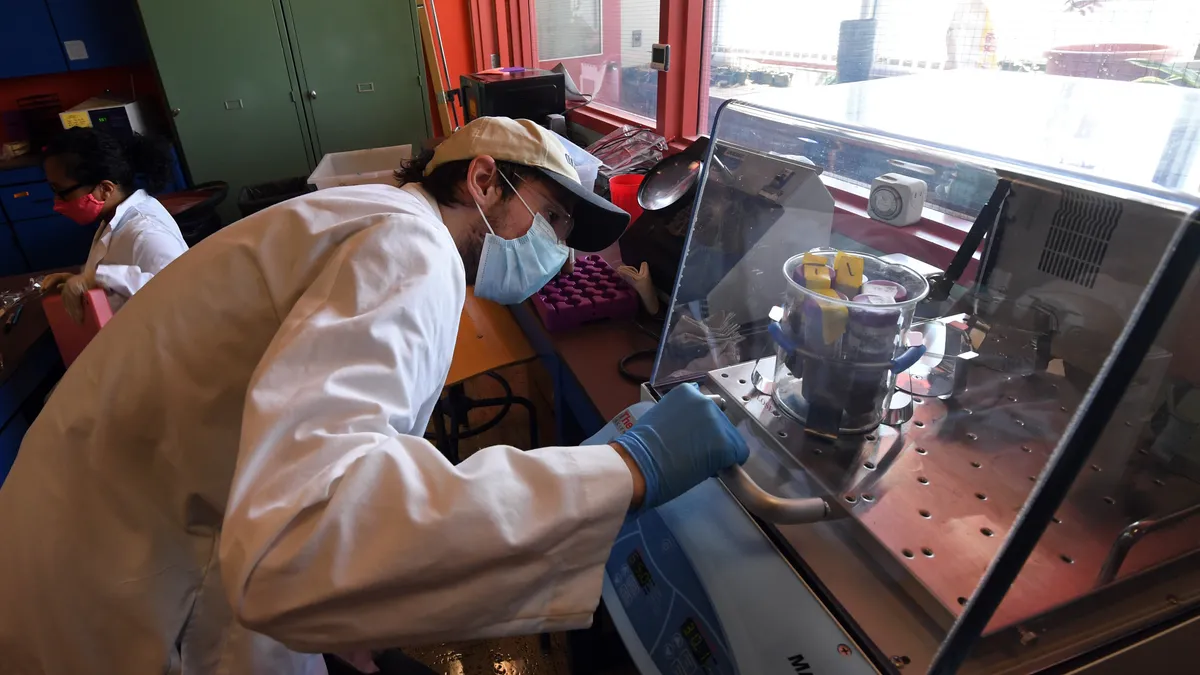Dive Brief:
- The Bill & Melinda Gates Foundation last week announced a series of six-month grants each totaling about $175,000 to support regional design efforts to boost dual enrollment and early college credit offerings.
- A dozen groups of organizations around the country are receiving the grants under an initiative the foundation calls Accelerate ED: Seamless Pathways to Degrees and Careers. Students should be able to earn enough credit to finish an associate degree a year after graduating from high school, all while earning career experience at little or no cost, according to the foundation. These pathways are meant to lead to a good job or enable students to transfer to a bachelor's program.
- The grants are intended to allow leaders to identify what works in different communities and determine which elements can be scaled to be effective in larger partnerships among higher ed, K-12 and employers.
Dive Insight:
Gates Foundation officials cast the new effort, announced May 24, as part of their work to promote education and workforce ecosystems in which student success isn't tied to race, ethnicity, gender or socioeconomic standing. It also fits into the foundation's focus on the value of postsecondary education.
Those who are Black, Hispanic, Latino and from low-income families have long faced harsher labor market and education outcomes. The pandemic dealt a further blow to many students' college prospects while also exacerbating inequities in the workplace.
About 1 million fewer students were enrolled in higher ed in fall 2021 than in fall 2019, the National Student Clearinghouse Research Center said earlier this year. Community colleges were hit worst. And throughout the pandemic, indicators have shown those employees who were most harmed include low-income, Black and Hispanic workers.
Almost two-thirds of jobs require some training past high school, according to the foundation.
The foundation says early college, career education and dual enrollment can help boost high school graduation rates and postsecondary attainment. Students who are able to obtain credentials or degrees that are in demand in the labor market can improve their economic mobility, said Sara Allan, director of early learning and pathways at the Gates Foundation, during a Tuesday conference call.
"One of the main anchoring objectives you see coming out as part of our larger education work is this concept of value, the idea that our education systems need to be designed to deliver value to the student as they make their way," Allan said.
More than 50 different groups applied for the grants. The 12 teams chosen are made up of K-12 leaders, higher ed officials, employers and community organizations. A consulting firm, Education Strategy Group, will take part in the design efforts.
Groups winning grants are located in Arizona, California, Illinois, Indiana, Kentucky, Louisiana, Massachusetts, New Mexico, New York, Ohio, Texas and Utah. Although each group operates in a different regional economy, several sectors came up frequently among the grant recipients: healthcare, information technology, advanced manufacturing and teaching pathways.
"It's really been interesting to see that there are actually commonalities in terms of sectoral focus," Allan said.














